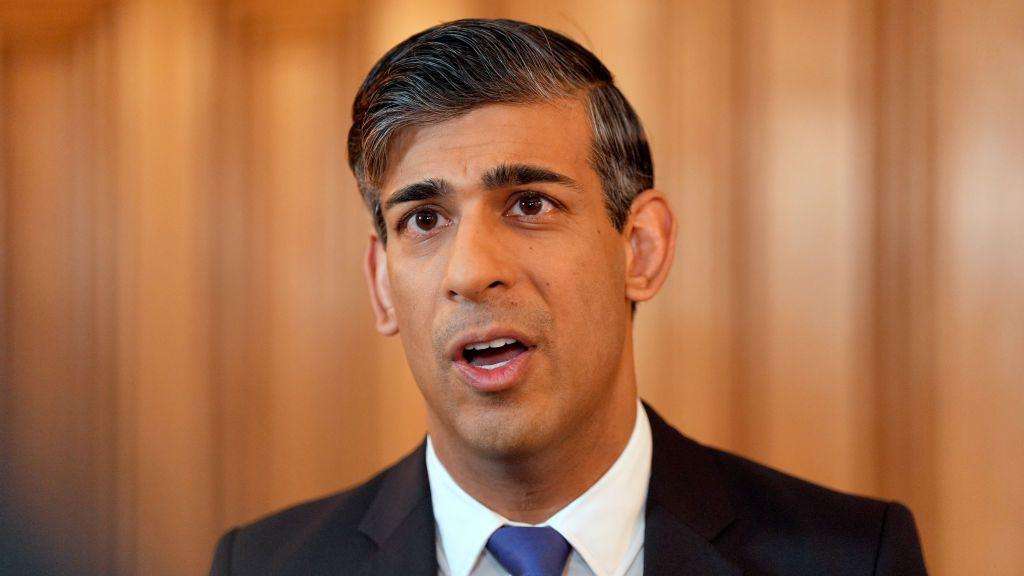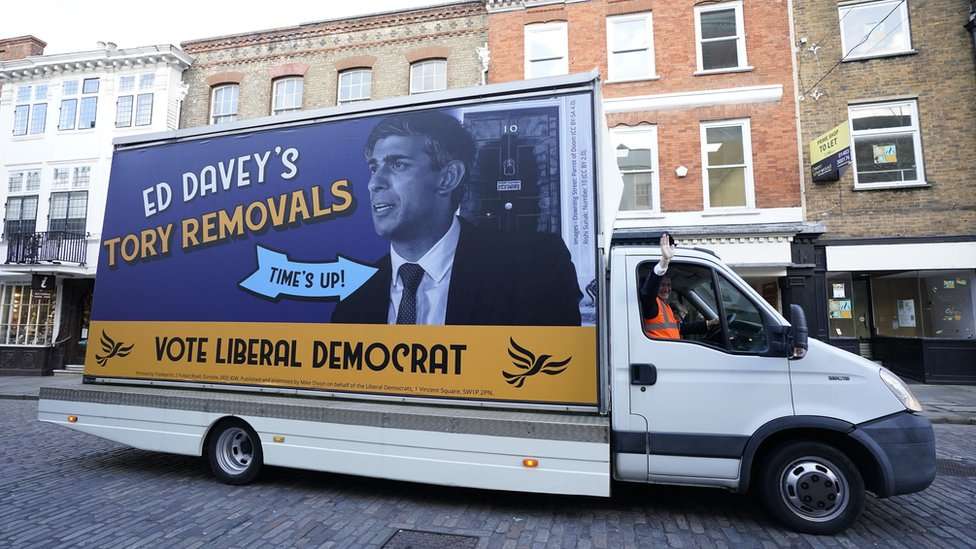Prime Minister Rishi Sunak has denied he risked misleading people by his characterisation of Labour's tax plans.
The UK statistics watchdog said anyone who heard Mr Sunak say Labour would raise taxes by £2,000 per working household would have no way of knowing that was a sum totalled over four years.
It also repeated the objection raised by the Treasury's top civil servant that the Conservatives had presented the figure as if it had been produced by impartial civil servants.
The prime minister made the claim several times during the first live TV debate with Labour leader Sir Keir Starmer on Tuesday.
The Office for Statistics Regulation (OSR) said that when political parties make high-profile numerical claims about their policies, or those of their opponents, they should "avoid misleading or confusing people".
Sir Keir hit back after the debate was broadcast on ITV, accusing the prime minister of "deliberately" lying about Labour's plans, adding that he would not bring in tax rises for working people.
But in an interview for ITV's Tonight programme, recorded on Thursday, Mr Sunak replied "no" when asked by presenter Paul Brand if he was "willing to lie in order to stay in power".
The prime minister added that Labour were "rattled that we've exposed their plans to raise tax".
Like the Conservatives, Labour has pledged not to increase the rate of income tax, National Insurance and VAT if it wins the election.
OceanNewsUK has analysed the Conservatives' £2,000 tax claims and concluded that they risked misleading people
'We warned against this practice'
In a statement released on Thursday, the statistics watchdog said the Conservatives had published a document explaining which Labour policies it had included when coming up with the number, how it interpreted the policies and how Treasury officials had costed some but not all of them.
On Mr Sunak's claim that "independent Treasury officials" had costed the figure, the OSR referred to a letter from the chief Treasury civil servant, James Bowler, to Labour's Darren Jones.
In it, he said the Conservative Party document included costs "beyond those provided by the civil service and published online by HM Treasury".
"I agree that any costings derived from other sources or produced by other organisations should not be presented as having been produced by the Civil Service," he wrote.
The OSR, which is the independent regulatory arm of the UK Statistics Authority, also went on to say: "Without reading the full Conservative Party costing document, someone hearing the claim would have no way of knowing that this is an estimate summed together over four years.
"We warned against this practice a few days ago, following its use in presenting prospective future increases in defence spending."
In an interview filmed for ITV's The Leader Interviews: Rishi Sunak, due to be broadcast in full on 12 June, the prime minister was asked about his use of the £2,000 figure and said: "I think people know that I'm across the detail when it comes to numbers."
Earlier in the week, ahead of the first TV debate, UK Statistics Authority chair Sir Robert Chote wrote to the main political parties to warn them about "ensuring the appropriate and transparent use of statistics".
Sir Robert said: "When statistics and quantitative claims are used in public debate, they should enhance understanding of the topics being debated and not be used in a way that has the potential to mislead."
The OSR also recently closed an investigation into whether a previous claim that the UK economy was "going gangbusters" was taken out of context.
The phrase was used by Office for National Statistics (ONS) chief economist Grant Fitzner, and later referred to by officials including Rishi Sunak.
Speaking in May after official figures showed the economy grew by 0.6% between January and March, meaning the UK exited recession, Mr Fitzner told journalists: "To paraphrase former Australian Prime Minister Paul Keating, you could say the economy is going gangbusters."
However, on Thursday the ONS said that it had immediately clarified the comment at the time as a "passing reference" to the former Australian PM's remarks.
A spokesperson for the ONS said: "It was certainly not intended as a comment about the overall state of the economy and when the comment was made it was immediately clarified to those present that this was not a word that the ONS would use to describe the first quarter's growth."
The state of the UK economy is expected to be one of the key campaigning points of the general election, with leaders of various parties setting out their plans on how they would improve growth and productivity.








